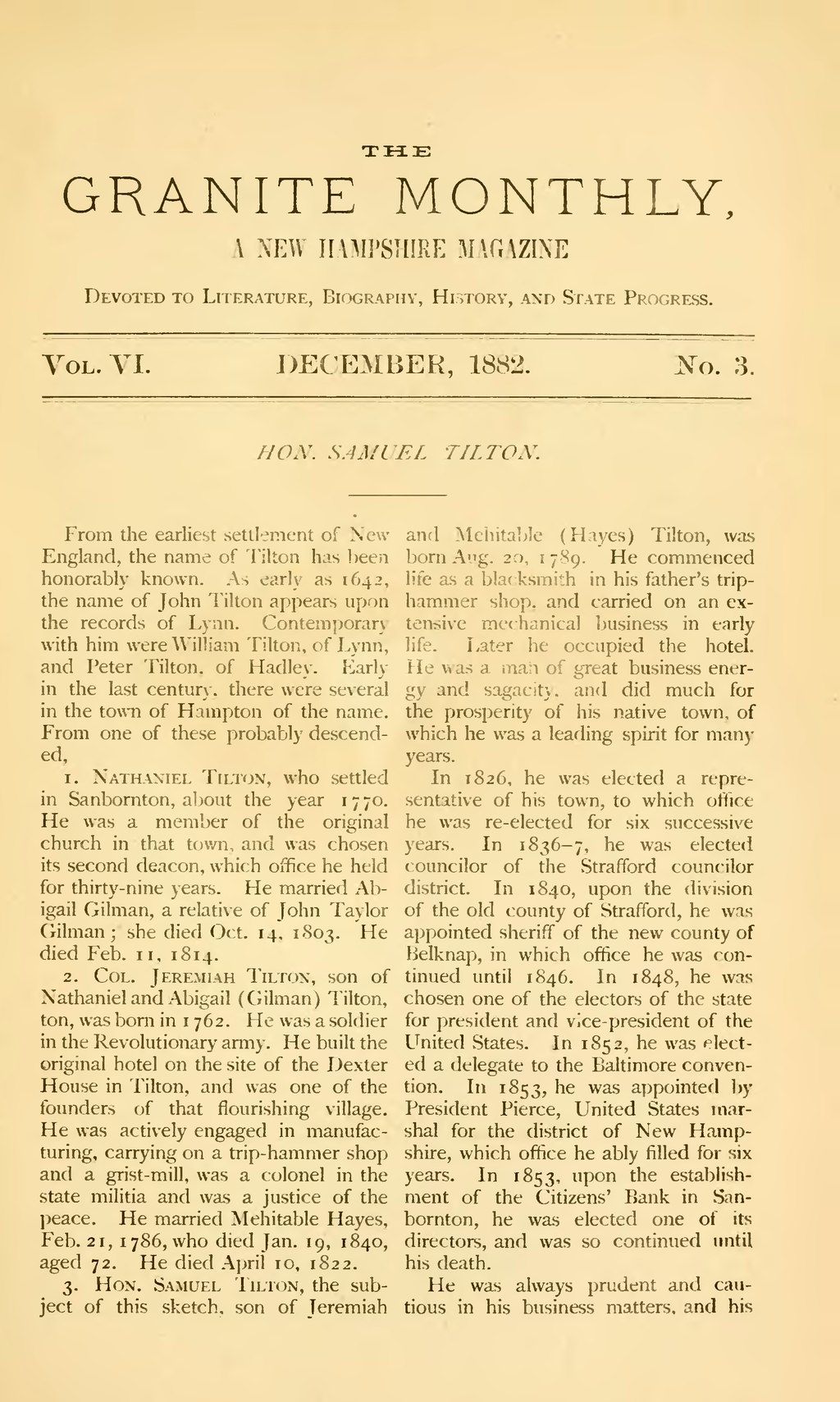THE
GRANITE MONTHLY,
A NEW HAMPSHIRE MAGAZINE
Devoted to Literature, Biography, History, and State Progress.
HON. SAMUEL TILTON.
From the earliest settlement New England, the name of Tilton has been honorably known. As early as 1642, the name of John Tilton appears upon the records of Lynn. Contemporary with him were William Tilton, of Lynn, and Peter Tilton, of Hadley. Early in the last century, there were several in the town of Hampton of the name. From one of these probably descended,
1. Nathaniel Tilton, who settled in Sanbornton, about the year 1770. He was a member of the original church in that town, and was chosen its second deacon, which office he held for thirty-nine years. He married Abigail Gilman, a relative of John Taylor Gilman; she died Oct. 14, 1803. He died Feb. n, 1814.
2. Col. Jeremiah Tilton, son of Nathaniel and Abigail (Gilman) Tilton, ton, was born in 1762. He was a soldier in the Revolutionary army. He built the original hotel on the site of the Dexter House in Tilton, and was one of the founders of that flourishing village. He was actively engaged in manufacturing, carrying on a trip-hammer shop and a grist-mill, was a colonel in the state militia and was a justice of the peace. He married Mehitable Hayes, Feb. 21, 1786, who died Jan. 19, 1840, aged 72. He died April 10, 1822.
3. Hon. Samuel Tilton, the subject of this sketch, son of Jeremiah and Mehitable (Hayes) Tilton, was born Aug. 20, 1789. He commenced life as a blacksmith in his father's trip-hammer shop, and carried on an extensive mechanical business in early life. Later he occupied the hotel. He was a man of great business energy and sagacity, and did much for the prosperity of his native town, of which he was a leading spirit for many years.
In 1826, he was elected a representative of his town, to which office he was re-elected for six successive years. In 1836–7, he was elected councilor of the Strafford councilor district. In 1840, upon the division of the old county of Strafford, he was appointed sheriff of the new county of Belknap, in which office he was continued until 1846. In 1848, he was chosen one of the electors of the state for president and vice-president of the United States. In 1852, he was elected a delegate to the Baltimore convention. In 1853, he was appointed by President Pierce, United States marshal for the district of New Hampshire, which office he ably filled for six years. In 1853, upon the establishment of the Citizens' Bank in Sanbornton, he was elected one of its directors, and was so continued until his death.
He was always prudent and cautious in his business matters, and his
